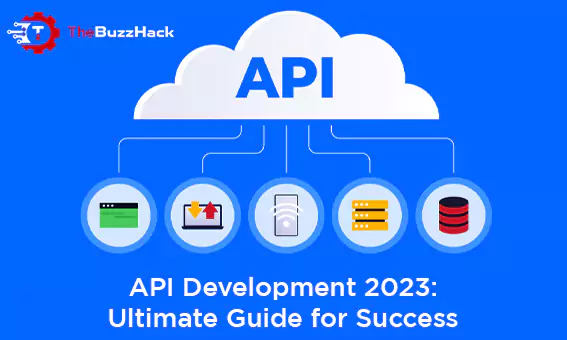
API Development 2023: Ultimate Guide for Success
An Application Programming Interface (API) defines the interaction between two programs, fostering collaborative operation through data interchange. While not mandatory for the Software Development Life Cycle (SDLC), APIs are commonly employed in intricate and diverse systems. This comprehensive reference covers various aspects of APIs, including their functionality, prominent users, types, monetization strategies, and more.
Why APIs are Valuable for Businesses
Building a mobile app without APIs in the development environment can be time-consuming. Utilizing APIs offers several benefits for expanding businesses:
Adapting to Cutting-Edge Tech:
- With APIs, businesses can easily integrate new technologies, leveraging a wide range of APIs tailored to specific needs. Growth teams can use them to enhance existing capabilities.
Quick Reaction Time:
- Many web and mobile applications rely on external APIs for their functionality, ensuring quick response times despite traversing multiple software components.
Inexpensiveness:
- APIs eliminate the need for additional staff or software, saving time and effort for the IT department.
Profiting from APIs:
- APIs can be monetized in various ways, including selling them as digital assets for ongoing earnings. This can be achieved through reselling API services to third parties or employing different business models.
- API Monetization Strategies:
- Offering APIs in prepackaged sets through API calls or database queries.
- Automating tasks like code building, uploading, testing, and deployment.
- Simplifying API usage for developers through proper documentation.
Building a Valued Community:
- Creating a community around the API, providing a free trial, and ensuring a positive user experience can increase the number of paying clients.
Types of APIs
API Composite:
- Combining two or more APIs to execute a sequence of actions, either combined or independent.
API Partner:
- Developed by a third party for usage by another firm, primarily in business-to-business transactions.
Open API:
- Public, open-source APIs that developers use to create their software or apps.
Private API:
- Developed for internal use within a company, also known as Intranet APIs, to safeguard intellectual property.
How APIs Function
APIs provide external access to a software program and consist of communication protocols and tools. Most API servers deploy RESTful services using HTTP as the binding protocol, offering reliability and user-friendliness. Understanding requirements and ensuring proper service delivery are crucial when designing an API.
Wrapping Up
To create a fully functional API, it is essential to avoid infringing on intellectual property and consider relevant technology stacks. While APIs have evolved to become powerful tools, their development is becoming more complex, necessitating the assistance of professionals for quick and successful implementation.
Read More: Essential Components of SaaS Development


